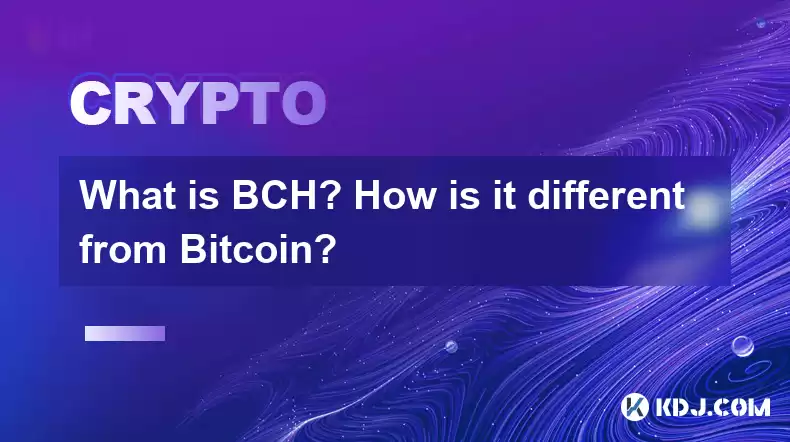-
 Bitcoin
Bitcoin $119100
-2.16% -
 Ethereum
Ethereum $4300
-0.31% -
 XRP
XRP $3.171
-2.99% -
 Tether USDt
Tether USDt $1.000
-0.01% -
 BNB
BNB $814.1
-1.33% -
 Solana
Solana $176.5
-4.67% -
 USDC
USDC $0.0000
0.00% -
 Dogecoin
Dogecoin $0.2267
-5.83% -
 TRON
TRON $0.3465
2.15% -
 Cardano
Cardano $0.7870
-4.98% -
 Chainlink
Chainlink $21.66
-2.27% -
 Hyperliquid
Hyperliquid $43.89
-4.62% -
 Stellar
Stellar $0.4414
-3.35% -
 Sui
Sui $3.707
-6.73% -
 Bitcoin Cash
Bitcoin Cash $599.1
3.73% -
 Hedera
Hedera $0.2504
-6.96% -
 Ethena USDe
Ethena USDe $1.001
-0.01% -
 Avalanche
Avalanche $23.21
-4.99% -
 Litecoin
Litecoin $121.1
-3.55% -
 Toncoin
Toncoin $3.415
0.45% -
 UNUS SED LEO
UNUS SED LEO $9.002
-1.24% -
 Shiba Inu
Shiba Inu $0.00001314
-5.43% -
 Uniswap
Uniswap $11.45
1.63% -
 Polkadot
Polkadot $3.926
-5.37% -
 Cronos
Cronos $0.1694
1.63% -
 Ethena
Ethena $0.8117
-2.35% -
 Dai
Dai $1.000
0.00% -
 Bitget Token
Bitget Token $4.422
-1.43% -
 Monero
Monero $264.2
-0.83% -
 Pepe
Pepe $0.00001137
-8.29%
What is BCH? How is it different from Bitcoin?
Bitcoin Cash (BCH), a 2017 Bitcoin fork, prioritizes faster transactions via larger block sizes, aiming for everyday usability. Unlike Bitcoin's focus on decentralization and security, BCH emphasizes scalability, resulting in differing development paths and community goals.
Mar 11, 2025 at 11:15 am

Key Points:
- Bitcoin Cash (BCH) originated from a Bitcoin hard fork in 2017.
- The core difference lies in block size and transaction speed. BCH has larger blocks, leading to faster transactions.
- BCH aims to be a peer-to-peer electronic cash system, prioritizing scalability over other features.
- Bitcoin emphasizes decentralization and security, potentially sacrificing speed for those goals.
- Both use similar cryptographic principles but differ in their development philosophies and community priorities.
What is BCH? How is it different from Bitcoin?
Bitcoin Cash (BCH), launched in August 2017, emerged from a contentious hard fork of the Bitcoin blockchain. This split was driven by disagreements within the Bitcoin community regarding the optimal block size. Bitcoin, at the time, had a relatively small block size limit, leading to slower transaction processing and higher fees during periods of high network activity. BCH proponents argued for increasing this limit to improve scalability and make Bitcoin more suitable for everyday transactions.
BCH's primary goal is to function as a more efficient and affordable peer-to-peer electronic cash system. It achieves this primarily through a significantly larger block size compared to Bitcoin. This larger block size allows for more transactions to be processed within each block, leading to faster confirmation times and lower transaction fees. The larger block size is a fundamental architectural difference between the two cryptocurrencies.
The differing block sizes directly impact transaction speeds and fees. Bitcoin’s smaller blocks can lead to congestion during periods of high demand, resulting in slower confirmation times and increased fees. BCH, with its larger blocks, generally offers faster confirmations and lower fees, making it potentially more attractive for frequent, smaller transactions. However, this comes with potential trade-offs discussed later.
Beyond block size, the development philosophies and community priorities also diverge. Bitcoin’s development has focused heavily on security and decentralization, sometimes at the expense of scalability. BCH, on the other hand, prioritizes scalability and faster transactions. This difference in approach has led to different development paths and distinct communities surrounding each cryptocurrency.
While both BCH and Bitcoin utilize similar cryptographic principles – such as SHA-256 hashing – their underlying codebases have diverged significantly since the hard fork. These code differences reflect the different priorities of their respective development teams and communities. For instance, BCH has implemented different scaling solutions and upgrade mechanisms compared to Bitcoin.
The different approaches to scaling have implications for the usability of each cryptocurrency. Bitcoin's focus on security and decentralization may make it more suitable for storing value and long-term investments. BCH's focus on speed and low fees might make it more appealing for everyday payments and microtransactions. However, the suitability of either depends largely on individual needs and priorities.
The mining algorithms for both are essentially the same, utilizing SHA-256. However, the differing block sizes and transaction throughput mean that the mining profitability and the required hash rate to successfully mine differ between the two. This difference in mining dynamics can affect the security and decentralization of both networks.
One key difference lies in the community’s vision for the future. Bitcoin's community often emphasizes its role as a store of value, a digital gold. The BCH community, however, often portrays it as a more practical, everyday currency, focusing on the utility and ease of use. These differing perspectives significantly influence the development and adoption of both cryptocurrencies.
How to acquire BCH:
- Exchanges: Many cryptocurrency exchanges list BCH, allowing you to buy it with fiat currency or other cryptocurrencies. Research reputable exchanges before making any transactions.
- Mining: You can mine BCH using specialized hardware, though profitability depends on factors like electricity costs and network difficulty.
- Receiving BCH: If someone sends you BCH, you'll need a BCH wallet to receive and store it securely.
Frequently Asked Questions:
Q: Is BCH a good investment?
A: Whether BCH is a good investment depends entirely on individual risk tolerance and market outlook. It's crucial to conduct thorough research and understand the risks associated with cryptocurrency investments before committing any funds. No investment guarantees profits.
Q: Is BCH more secure than Bitcoin?
A: Both Bitcoin and BCH utilize strong cryptographic algorithms. However, their relative security depends on various factors, including the size and activity of their respective mining networks. A larger, more decentralized mining network generally implies greater security.
Q: Can I use BCH for everyday transactions?
A: Yes, BCH is designed to facilitate everyday transactions due to its faster transaction speeds and lower fees compared to Bitcoin. However, merchant acceptance remains a factor to consider.
Q: What are the risks associated with investing in BCH?
A: Investing in cryptocurrencies, including BCH, carries significant risk. The market is highly volatile, and prices can fluctuate dramatically. Regulatory uncertainty, technological vulnerabilities, and market manipulation are also potential risks.
Q: How do I store BCH safely?
A: Use a reputable hardware wallet or a secure software wallet. Never store significant amounts of BCH on exchanges. Always practice strong security measures, such as using strong passwords and enabling two-factor authentication.
Q: What is the future of BCH?
A: Predicting the future of any cryptocurrency is speculative. The success of BCH will depend on various factors, including its adoption rate, technological advancements, and the overall evolution of the cryptocurrency landscape.
Disclaimer:info@kdj.com
The information provided is not trading advice. kdj.com does not assume any responsibility for any investments made based on the information provided in this article. Cryptocurrencies are highly volatile and it is highly recommended that you invest with caution after thorough research!
If you believe that the content used on this website infringes your copyright, please contact us immediately (info@kdj.com) and we will delete it promptly.
- Ethereum Layer-2 Scaling Competition Heats Up as ETH Breaks $4K
- 2025-08-12 10:30:12
- Meme Coins, Investment, and Token Burns: What's Hot in 2025?
- 2025-08-12 10:30:12
- BlockDAG, Chainlink, Hedera: The Cryptos Enterprises are Eyeing
- 2025-08-12 09:30:12
- Dogecoin's Wild Ride: Big Holders, Price Push, and What's Next for the Meme Coin
- 2025-08-12 08:30:12
- Coin Master Board Adventure: Free Energy and the Thrill of the Board
- 2025-08-12 08:50:12
- Bitcoin to $133,000? Here's What the Experts Are Saying
- 2025-08-12 08:30:12
Related knowledge

How to purchase Aragon (ANT)?
Aug 09,2025 at 11:56pm
Understanding Aragon (ANT) and Its PurposeAragon (ANT) is a decentralized governance token that powers the Aragon Network, a platform built on the Eth...

Where to trade Band Protocol (BAND)?
Aug 10,2025 at 11:36pm
Understanding the Role of Private Keys in Cryptocurrency WalletsIn the world of cryptocurrency, a private key is one of the most critical components o...

What is the most secure way to buy Ocean Protocol (OCEAN)?
Aug 10,2025 at 01:01pm
Understanding Ocean Protocol (OCEAN) and Its EcosystemOcean Protocol (OCEAN) is a decentralized data exchange platform built on blockchain technology,...

Where can I buy UMA (UMA)?
Aug 07,2025 at 06:42pm
Understanding UMA and Its Role in Decentralized FinanceUMA (Universal Market Access) is an Ethereum-based decentralized finance (DeFi) protocol design...

How to buy Storj (STORJ) tokens?
Aug 09,2025 at 07:28am
Understanding Storj (STORJ) and Its Role in Decentralized StorageStorj is a decentralized cloud storage platform that leverages blockchain technology ...

Where to find the best price for Audius (AUDIO)?
Aug 11,2025 at 04:01pm
Understanding the Basics of Ethereum StakingEthereum staking refers to the process of locking up ETH tokens to support the security and operations of ...

How to purchase Aragon (ANT)?
Aug 09,2025 at 11:56pm
Understanding Aragon (ANT) and Its PurposeAragon (ANT) is a decentralized governance token that powers the Aragon Network, a platform built on the Eth...

Where to trade Band Protocol (BAND)?
Aug 10,2025 at 11:36pm
Understanding the Role of Private Keys in Cryptocurrency WalletsIn the world of cryptocurrency, a private key is one of the most critical components o...

What is the most secure way to buy Ocean Protocol (OCEAN)?
Aug 10,2025 at 01:01pm
Understanding Ocean Protocol (OCEAN) and Its EcosystemOcean Protocol (OCEAN) is a decentralized data exchange platform built on blockchain technology,...

Where can I buy UMA (UMA)?
Aug 07,2025 at 06:42pm
Understanding UMA and Its Role in Decentralized FinanceUMA (Universal Market Access) is an Ethereum-based decentralized finance (DeFi) protocol design...

How to buy Storj (STORJ) tokens?
Aug 09,2025 at 07:28am
Understanding Storj (STORJ) and Its Role in Decentralized StorageStorj is a decentralized cloud storage platform that leverages blockchain technology ...

Where to find the best price for Audius (AUDIO)?
Aug 11,2025 at 04:01pm
Understanding the Basics of Ethereum StakingEthereum staking refers to the process of locking up ETH tokens to support the security and operations of ...
See all articles

























































































